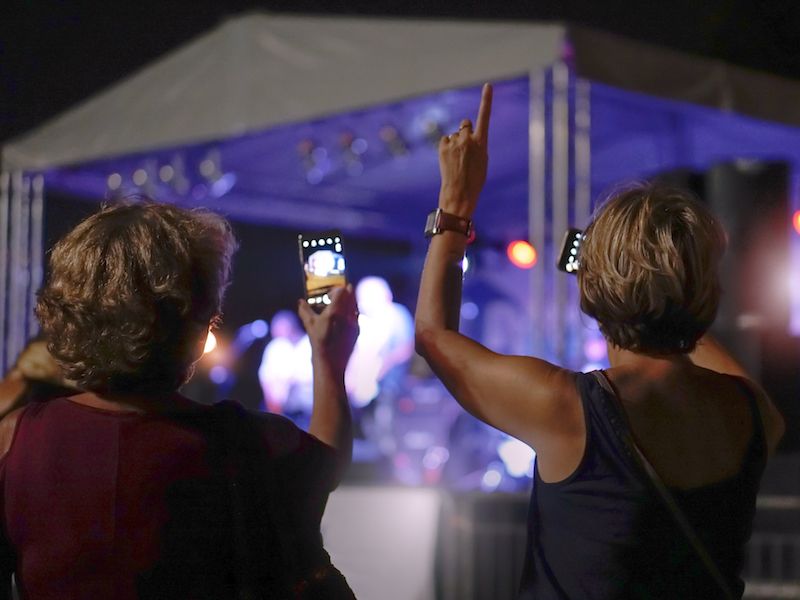
We’ve been getting excited about summer activities all year: swimming in the pool, visiting the beach, and some activities that could injure your hearing. That’s correct, summer has many hidden potential risks to your hearing, either from loud sounds or the external situations you could find yourself in. Any noises over 80 decibels could cause damage to your hearing, while permanent hearing loss can happen in swimming pools or other bodies of water. To keep your ears safe this summer, you need to be aware of your environment and take precautions. Keep reading to learn the summer’s six hidden hazards to your ears.
At Concerts, Use Hearing Protection
The summer season is concert time, but even if you’re in an outdoor arena, you still should take care of your ears. 90 decibels is inside the danger zone for hearing damage and live music reaches this volume even when you’re at outdoor venues. So regardless of whether you’re attending an outside or inside shows, it’s a good plan to use earplugs. You can still hear the music with earplugs it’s just dampened a little. If you’re going to a concert with young kids, consider getting them a heavy duty set of earmuffs because children have more delicate ears than adults.
It’s More Than Just Loud at Fireworks
Honestly, there are a lot of reasons to avoid fireworks in the summer. We’re not talking about the expert 4th of July displays, we mean the backyard fireworks which every summer cause many of injuries. In addition to causing hand injuries, blindness, and home fires, personal fireworks can also result in severe harm to your ears since they are known to achieve decibel levels of 155. This 4th of July, leave the fireworks to the professionals and enjoy the show from a safe and sound distance.
Loss of Hearing Can be Brought About by Lawnmowers
If you care about your lawn, your edger, trimmer, and mower are your best friends. But have you ever noticed how off your ears feel when you get done, how everything sounds muffled or your ears are ringing? That’s because the lawn tools, which are constantly loud, have a slow and steady impact on your hearing. If you’ve ever observed landscapers, you most likely have noticed them utilizing ear protection, next time you do yard work with noisy power equipment, you need to take a hint from them and use earmuffs or earplugs.
Pools And Beaches, What You Need to do to Safeguard Your Hearing
Huge numbers of people suffer from swimmer’s ear every summer, which occurs when bacteria-laden water gets trapped in your ear canal. Swelling and painful earaches are the result when the ear gets infected by the bacteria. It’s not exclusively rivers and lakes that hold these bacteria, they can also be found in hot tubs and pools if they are not cleaned and treated properly. No permanent damage should take place if you have your hearing checked out by a hearing professional. To prevent swimmer’s ear, though, you should wear special swimming earplugs in the pool and get your pool water analyzed to make sure the chemical balance is ok.
Water Sports And Boats
If you love the water, the summer season is beach and boating time for you. But, boat and jet ski engines can be noisy,they can get up to more than 100 decibels. Continuous subjection to that much noise for around 15 minutes can result in long-term hearing damage. In this situation also, using a set of disposable foam earplugs is a smart plan.
Car Races Can Injure Your Ears
It doesn’t make a difference what kind of auto racing you like, midget, Formula 1, drag racing, motorcycle Formula 1. If you attend many auto-races this year, they all present a peril. 120 dB is well within the danger zone for hearing damage and a number of races go way above this. As mentioned before, your children should wear muffs whereas you should wear earplugs at least. Otherwise, you may not get to enjoy the sound of those engines as you get older.

